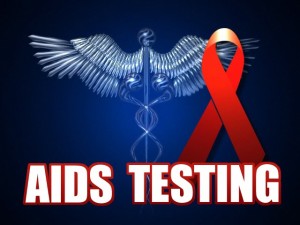HPV/Genital Warts Testing
Infection with the HPV virus is common and infects at least 50% of all people who have had sex. It may go away, sometimes unnoticed, but some types of HPV can lead to cervical cancer or cancer of the anus or penis.
HPV stands for human papillomavirus, but there are actually more than 100 related viruses in this group. Each HPV virus is given a number or type. The term “papilloma” refers to a kind of wart that results from some HPV types.
HPV lives in the body’s epithelial cells. These are flat and thin cells found on the skin’s… Continue reading
Florida Medicaid Coverage of Routine HIV Screening
Introduction
The Centers for Disease Control and Prevention (CDC) recommends that HIV screening be a part of routine medical care for all patients between the ages of 13 and 64. These recommendations are intended for all health care providers in both the public and private sectors. Medicaid is the largest source of care and coverage for people with HIV/AIDS in the United States, but routine HIV screening for adults is an optional Medicaid benefit which states may choose to cover.
HIV Screening
HIV testing is integral to HIV prevention, treatment, and care efforts. Knowledge of one’s HIV status is important for preventing the spread of disease.
Yet the CDC estimates that of the more than 1.1 million people living with HIV/AIDS in the U.S., almost one in five (18%) do not know they are infected. To increase HIV testing rates and knowledge of HIV status, CDC released revised screening guidelines in 2006, recommending, for the first time, routine HIV screening in all health care settings for 13 to 64 year-olds, unless a patient opts out. Routine HIV screening is broad, population-based screening, in contrast with “medically necessary” testing and testing targeted at those at higher risk. The CDC’s routine HIV screening recommendations are intended for health care providers, who are central to their implementation in clinical practice.
HIV Testing in the U.S.
 HIV testing is integral to HIV prevention, treatment, and care. Knowledge of one’s HIV status is important for preventing the spread of disease. Studies show that those who learn they are HIV positive modify their behavior to reduce the risk of HIV transmission.1, 2 Early knowledge of HIV status is also important for linking those with HIV to medical care and services that can reduce morbidity and mortality and improve quality of life.1, 2
HIV testing is integral to HIV prevention, treatment, and care. Knowledge of one’s HIV status is important for preventing the spread of disease. Studies show that those who learn they are HIV positive modify their behavior to reduce the risk of HIV transmission.1, 2 Early knowledge of HIV status is also important for linking those with HIV to medical care and services that can reduce morbidity and mortality and improve quality of life.1, 2

